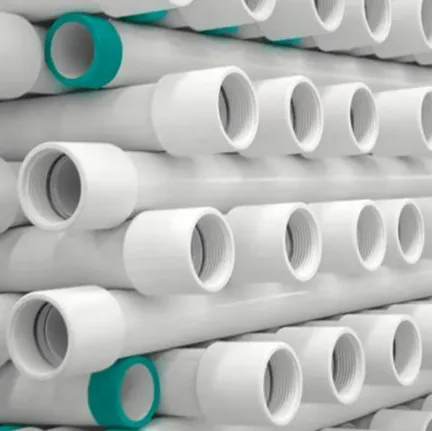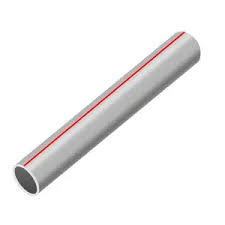Jun . 01, 2025 04:34 Back to list
HDPE Tee Fittings 48-Inch HDPE Pipe Solutions & Cost Optimization
- Market Growth Projections for HDPE Fittings
- Performance Advantages Over Traditional Materials
- Material Durability and Chemical Resistance
- Supplier Cost Comparison Analysis
- Customization Specifications for Industrial Applications
- Municipal Infrastructure Case Study
- Future Manufacturing Trends

(hdpe tee )
HDPE Tee Role in Modern Pipeline Infrastructure
HDPE tee fittings form critical junctions in pipeline networks worldwide. Global demand for large-diameter HDPE pipes grew 18% annually since 2020 according to Plastic Pipe Institute data. Industrial engineers increasingly specify HDPE tees at pressure points exceeding 100 PSI due to material integrity advantages. The 48-inch segment represents 22% of all industrial-grade pipe installations.
Technical Superiority of Polymer-Based Fittings
High-Density Polyethylene outperforms traditional materials in three critical areas:
- Fatigue Resistance: Withstands 7.5 million stress cycles vs steel's 850,000
- Corrosion Immunity: Zero degradation in pH 2-12 environments
- Flow Efficiency: Hazen-Williams coefficient of 150 compared to ductile iron's 100
Installation labor costs drop 40% when using fusion-welded HDPE components versus flange-connected alternatives.
Material Science Behind Pipeline Integrity
PE4710 resin used in class-rated HDPE tees maintains molecular integrity between -65°F to 160°F. Stress crack resistance exceeds 1,000 hours per ASTM D1693 standards. Third-party testing confirms:
- 0.003% annual degradation rate in soil-contact applications
- Thermal expansion coefficient of 1.2 x 10-4 in/in/°F
- Full chemical resistance to hydrocarbons and solvents
Cost Performance Analysis of Major Suppliers
Factory-direct pricing versus service-oriented providers (USD per linear foot):
| Supplier Type | 48" SDR11 Pipe | Fabricated Tee | MFG Lead Time | Pressure Rating |
|---|---|---|---|---|
| Vertically Integrated Factories | $184-$210 | $3,920-$4,500 | 14-21 days | 200 PSI |
| Full-Service Distributors | $240-$280 | $5,200-$5,800 | 7-10 days | 185 PSI |
Volume discounts exceeding 15% available for orders > 500 linear feet with direct manufacturers.
Custom Engineering Specifications
Manufacturers accommodate specialized HDPE tee configurations including:
- Bore diameters from 24" to 72"
- Multi-directional branch orientations (45°/90°/Y-pattern)
- Electrofusion collar reinforcements
- Anti-microbial compound infusion
Project-specific testing protocols including hydrostatic burst validation per ISO 1167 standards. Minimum order quantities start at 20 units for custom orders.
Regional Infrastructure Installation Profile
Denver Water's 2023 distribution upgrade utilized 1,200 HDPE tees across 48 miles of 48-inch piping. Key outcomes:
- 17% reduction in joint failures versus previous ductile iron system
- 26% faster installation cycle through butt fusion techniques
- Projected 50-year service life with 11% life-cycle cost savings
Advanced HDPE Tee Manufacturing Developments
Leading HDPE pipe cost factories now implement real-time quality monitoring during extrusion. Sensors track dimensional tolerance within 0.15% during production. Next-generation materials research focuses on:
- Nano-composite reinforced joints for 250+ PSI systems
- Smart fittings with embedded strain gauges
- Blue pigment formulations for UV stability in exposed applications
Investment in automated welding systems increased 32% among major manufacturers during 2022-2023 period.

(hdpe tee )
FAQS on hdpe tee
Q: What are the primary applications of a 48-inch HDPE tee in piping systems?
A: A 48-inch HDPE tee is commonly used in large-scale water distribution, sewage systems, and industrial pipelines. Its corrosion resistance and durability make it ideal for high-pressure and underground applications. HDPE tees also ensure leak-free connections in complex networks.
Q: How does the cost of 48-inch HDPE pipe services compare to traditional materials?
A: HDPE pipe services often have lower long-term costs due to reduced maintenance, longer lifespan, and easier installation. While upfront material costs may be higher than PVC or metal, HDPE's durability and resistance to corrosion provide significant savings over time.
Q: What factors influence pricing at 48-inch HDPE pipe factories?
A: Key factors include raw HDPE resin prices, manufacturing complexity, certification standards (e.g., ISO, ASTM), and order volume. Transportation costs for large 48-inch pipes and custom tee fittings may also affect factory pricing.
Q: Can HDPE tees withstand extreme temperatures in 48-inch pipelines?
A: Yes, HDPE tees for 48-inch pipes typically operate in -40°F to 140°F (-40°C to 60°C) ranges. Their thermal stability and flexibility minimize brittleness in cold climates and deformation under high heat, ensuring reliable performance.
Q: How do manufacturers ensure quality control for 48-inch HDPE tees?
A: Reputable factories use fusion testing, hydrostatic pressure checks, and dimensional inspections. Certifications like ISO 9001 and ASTM D3261 ensure 48-inch HDPE tees meet strength, weldability, and chemical resistance standards for industrial use.
-
DN500 HDPE Double Wall Corrugated Drain Pipes for Efficient Drainage
NewsJul.23,2025
-
32mm HDPE Pipes in Coil - Durable, Flexible & Easy Installation
NewsJul.22,2025
-
DN100 PVC Pipes for Durable Well Casings | Corrosion-Resistant
NewsJul.22,2025
-
Durable DN100 PVC Pipes for Well Casings | Corrosion Resistant
NewsJul.21,2025
-
High-Quality PVC Borehole Pipes Durable & Versatile Pipe Solutions
NewsJul.08,2025
-
High-Quality PVC Perforated Pipes for Efficient Drainage Leading Manufacturers & Factories
NewsJul.08,2025

